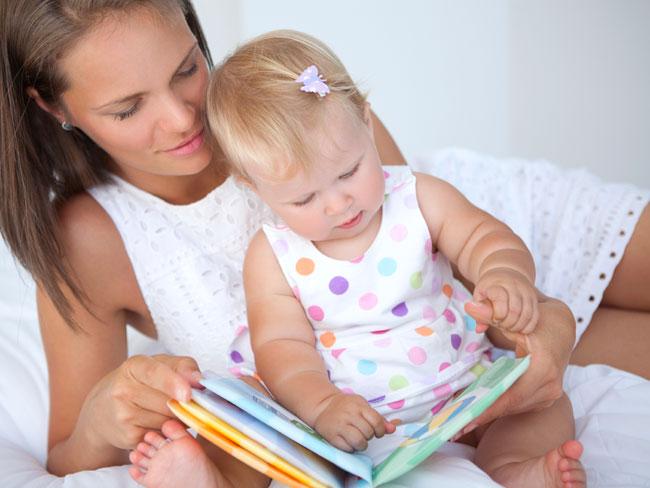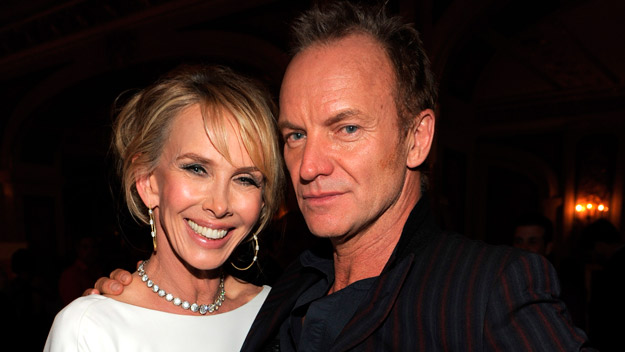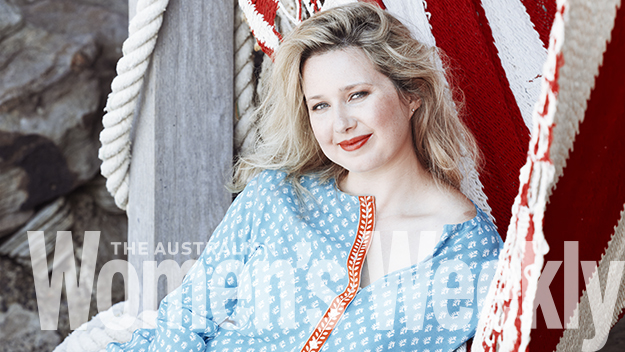There’s nothing wrong with a bit of culture for your little one and he’ll love it if you get involved too – so get reading and play some sweet music together
12-18 months
A snuggle on your lap with a book can be very soothing for you and your baby. Reading also helps develop your child’s ear for language and rhythm, aids future speech development, and encourages listening skills. With developing memory and understanding, she may start having favourite books.
Your child will also love to hear you sing and clap, and has the capacity to appreciate a wide range of music.
Things she’ll love
Whether board, cloth, plastic or novelty (ie jigsaws or textures), your child will love books that encourage joining in. She’ll like rhyming texts or repeated phrases; animal sounds; questions; flaps to lift; picture books; simple stories; more complicated stories, and nursery rhymes.
How to help
Make reading part of your everyday routine – bedtime is ideal.
Use books without words so you can say what you want without sticking to a set text.
Let your child point things out to you.
Sing or recite nursery rhymes with lots of emphasis on the rhythm.
Start playing your child a range of music.
Sing her lullabies at bedtime.
18-24 months
Your child will take books seriously now, and may believe that the pictures are true or tell a story about her. With more sophisticated memory and understanding, she may be developing favourites – the repetition may be boring for you but it really helps her to concentrate and anticipate things. The same applies to a tape of favourite songs. And music, by helping your child see patterns in rhymes and music, encourages her to see patterns.
Things she’ll love
Your child will love story books involving repetition; stories with a surprise ending; books with the same character; series books; books with a theme (ie dinosaurs); a cassette of sung and spoken nursery rhymes; and simple musical instruments like drums or xylophone.
How to help
Keep books on a low shelf so your child has easy access to them. Board and other durable books can be kept in the toybox.
Talk about what you’ve read to encourage thinking skills, vocabulary and comprehension.
Have a box of first musical instruments, such as a recorder, drums or xylophone.
Consider a music class where your child can listen to and join in with music. Ask around – your local maternal and child health centre should be able to tell you about classes in your local area.
Two to three years
Now that your child’s speech is becoming more fluent, reading really helps boost her vocabulary and expand her understanding of the world. Children who’ve been read to as babies score higher in numeracy and reading tests at school age.
Music may also help boost thinking skills. Studies at the University of California suggest that early exposure to music may help develop spatial awareness, as well as future logic and maths skills.
Things she’ll love
Your child will love longer stories with a variety of subjects ie home life, playgroup, hospital; fairytales; magic or adventure stories; rhymes and poems; counting and shape books; alphabet and word books; simple information books; a wider range of cassettes such as action songs or stories with music; cassettes of children’s musical classics such as Peter and the Wolf by Prokofiev or Carnival of the Animals by Saint-Seans.
How to help
Make regular library visits, and let your child choose some books.
Point words out to your child on signs, posters, shop windows, railway stations.
Listen to CDs together and encourage your child to join in the singing or act out bits.
Play your child your favourite music, from South American to Bach.
Switch on the radio or stereo instead of the TV or video.


